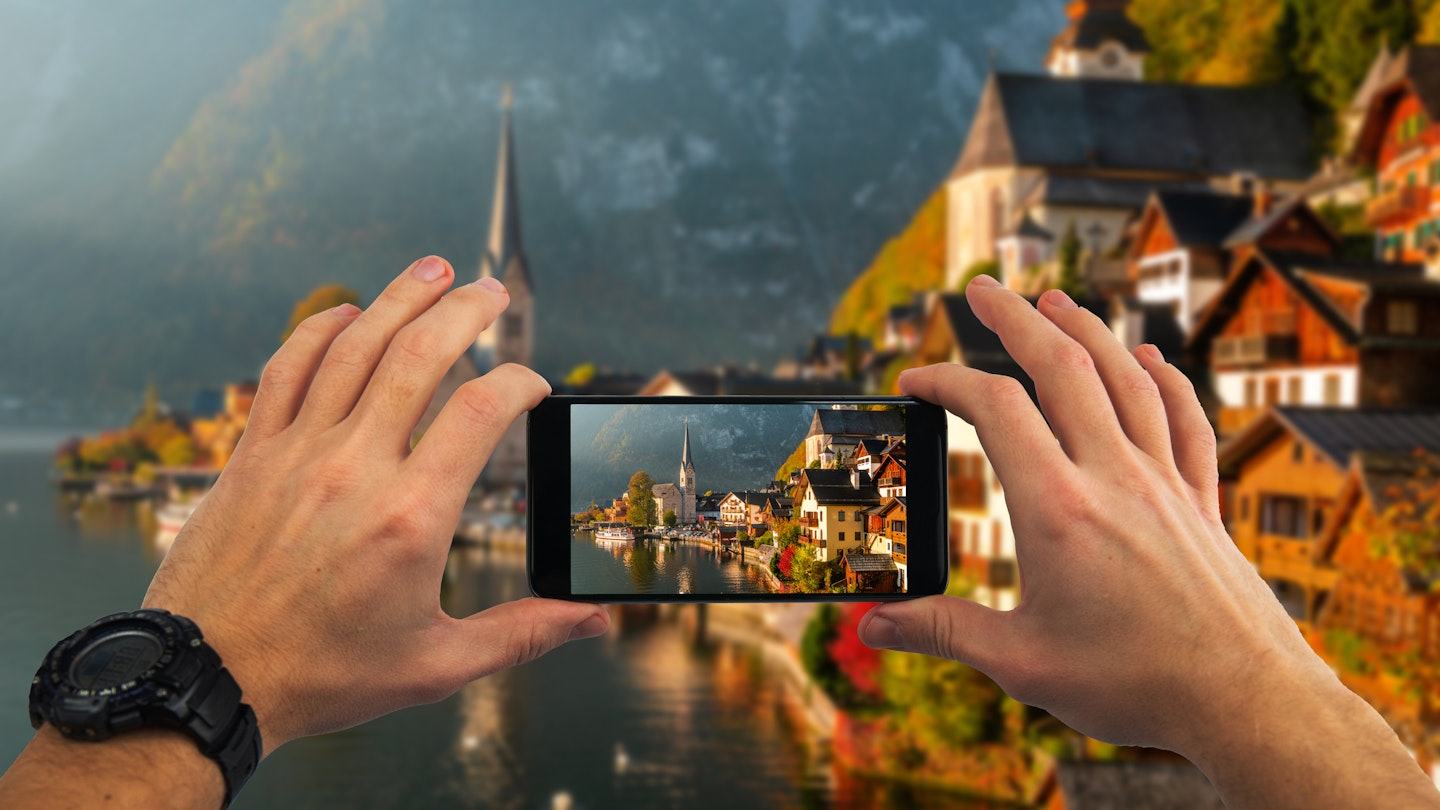Hallstatt: A Growing Tourism Dilemma in Austria
Hallstatt residents are up in arms over an influx of tourists to their picture-perfect town, nestled in Austria’s Salzkammergut region. This quaint village is renowned for its stunning Alpine lakeside panorama, where its charming houses and slender church spire stand against an impressive mountain backdrop.
With fewer than 800 inhabitants, Hallstatt attracts up to 10,000 tourists a day, resulting in nearly a million visitors annually. Consequently, this small town faces significant challenges due to the overwhelming number of day-trippers from nearby Salzburg.

Last month, approximately 100 residents blocked road access to protest against the overwhelming presence of tourists. They argue that their hometown has become too noisy and overcrowded. As a result, they have requested a cap on the daily number of visitors and a ban on tour buses entering the town after 5 PM. One protester poignantly highlighted the issue with a placard reading, “Radical frontiers for mass tourism.”
This is not the first time that Hallstatt has seen its residents raise concerns. In a recent effort to curb tourist foot traffic, locals erected a wooden “anti-selfie” fence, which effectively obstructed the beloved view that many visitors come to see. However, this action backfired on social media, leading to the fence’s removal.

A Must-Visit Selfie Stop
Designated a UNESCO World Heritage site since 1997, Hallstatt is home to some of the oldest salt mines globally, with a rich history spanning over 7,000 years. Its picturesque settings have also made it a popular filming location, including for the beloved Korean drama Spring Waltz. Consequently, as tourism blooms, Hallstatt has solidified its status as a must-visit selfie destination for many travelers in the region.
However, the rising opposition among locals poses a significant challenge to Hallstatt’s economy. The village relies on tourist revenue, as it lacks a local industry and is not a ski destination like many others in the surrounding Dachstein mountains.

A 2024 European Capital of Culture
Next year, Hallstatt will be part of the European Capital of Culture designation, along with 22 other towns across the Salzkammergut. This honor is likely to lead to an even greater influx of visitors. To experience Hallstatt with fewer tourists, consider planning your visit during the spring or autumn, when crowds are lighter.
Exploring Alternative Towns to Avoid the Crowds
If you seek a tranquil escape, it is easy to discover equally stunning Austrian lakeside towns just a short distance from Hallstatt. The Salzkammergut boasts an abundance of picturesque lakes and charming towns, offering peaceful alternatives to the bustling tourist scene.

Altaussee
Altaussee is renowned for its stunning lake, Altausseer See, which is enveloped by majestic mountains perfect for both leisurely walks and adventurous hikes. This scenic location was even featured in the 2015 James Bond film Spectre. Conveniently located a couple of stops from Hallstatt by train, followed by a short bus ride, Altaussee offers a much quieter experience. Additionally, nearby salt mines provide less crowded tours compared to Hallstatt.
St. Gilgen
Located just 45 minutes from Salzburg, St. Gilgen is a picturesque town situated on the shores of Wolfgangsee. Visitors can enjoy ferry rides to St. Wolfgang, where a mountain railway ascends Schafberg for breathtaking views.
Mondsee
The charming town of Mondsee offers scenic views over its namesake lake, complemented by a beautifully preserved old town. Notably, it is famous for its impressive church, known as the iconic filming location for the wedding scene in The Sound of Music.

Grundlsee
Just a short bus ride from Bad Aussee, Grundlsee is larger than Altausseer See, making it a popular retreat for swimming and pedal-boat rides amidst breathtaking mountain scenery. A leisurely stroll can also lead you to the serene Toplitzsee, where traditional flat-bottomed wooden boats offer a unique experience on the water.
Bad Ischl
The elegant spa town of Bad Ischl was once the summer residence of Emperor Franz Josef, exuding an imperial charm reminiscent of its glorious past when it was one of the most desirable destinations in the Habsburg Empire.





